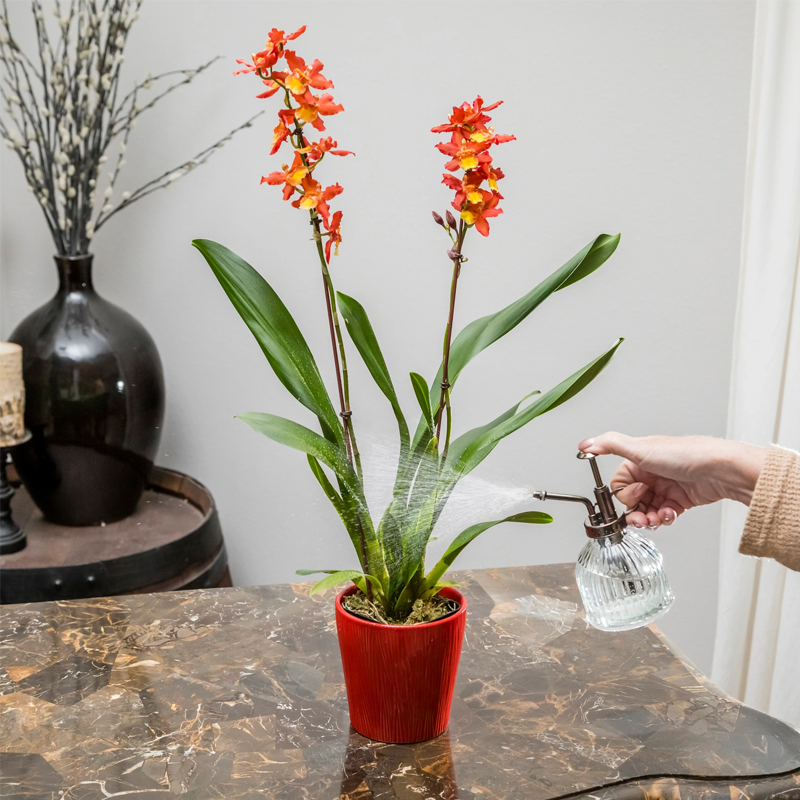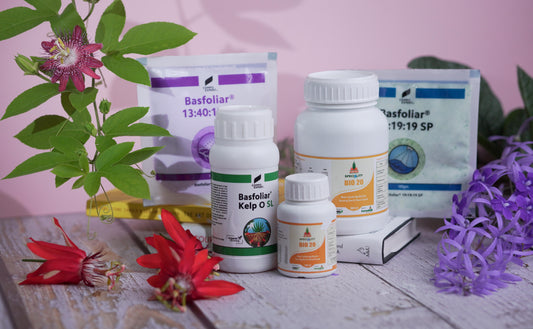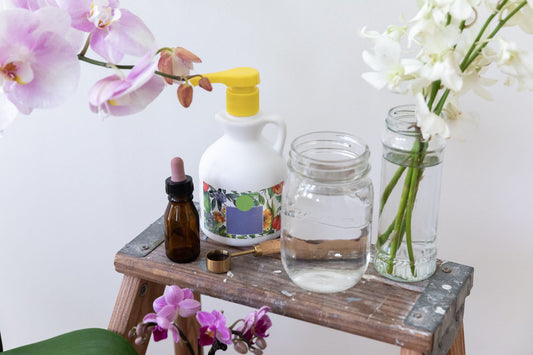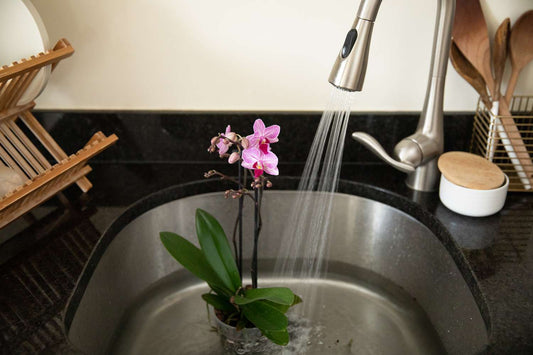
Fertilizing Orchids
Orchids will grow and flower at the right light, temperature and humid conditions. However, they will thrive when they are regularly fertilized.
This is because unlike regular plants which get different nutrients from the soil, orchid plants don’t get any nutrients from the potting medium.
The only source of nutrients for orchid plants is from the water. Naturally, water will have nutrients but not to the extent which will help the plants to thrive.
We recommend using a balanced formula like NPK 19:19:19 (Basfoliar 19-19-19) with micronutrients or a complete plant food like Speciality Bio 20 will provide all the nutrients required to grow and flourish.
Healthy plants are less susceptible to pests and diseases.
Frequently Asked questions
Fertilizer FAQs
I'm too lazy. Why can't I just get a big pot and allow my orchid to grow in it for years? Isn't that easier?
Epiphytic orchids in nature are found growing with their roots exposed to the various elements.
They are fertilized by bird droppings and washed by the rain. The old bark is stripped off and replaced with new bark and they are in a symbiotic relationship with various other living organisms in their environment.
In effect, they grow best in a dynamic environment compared to the static environment in a pot.
Beyond 2-3 years, this static environment in the pot can become intolerable to the plant due to the buildup of toxic fertilizer residue, extremes in pH, decaying roots as well as decaying soggy media. This can only be set right by repotting.
I've visited a lot of orchid sites and each one has something to contradict what I've previously learned. How do I know if I'm reading the right thing?
You must remember that what works for you might not work for another person, for the simple reason that there are various parameters involved when it comes to growing orchids successfully.
Different orchids come from different regions of the world and have evolved to adjust to that particular climate. There are orchids that come from regions where it rains most of the year and there are others that will not bloom unless there is a remarkable dip in temperature.
Before buying your orchid, read well about their requirements and see if it will be possible for you to provide similar conditions. Talk to our Orchidists at Orchid Tree and gradually you'll learn how to grow your orchids to the best.



